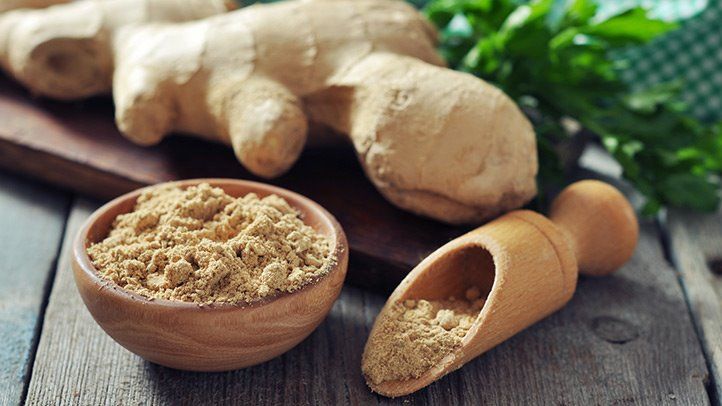Pain can affect every aspect of your life. It can be mild or get to the point when it’s simply unbearable. Whether you’re experiencing frequent headaches or trying to deal with chronic pain caused by another condition, the chances are that you’re constantly looking for solutions that could bring you some much-needed relief.
If you’ve already tried every over-the-counter medication possible and don’t want to risk side effects anymore, you could try more natural methods of dealing with pain. Whether it’s caused by the menstrual cycle, migraines, inflammation, rheumatism, or an injury, there are plenty of effective alternatives that might work for you like a charm.
With that being said, read the article below to find a list of natural painkillers. From CBD and ginger to cloves, essential oils, and acupuncture – there are many natural solutions you can try to ease the pain without taking medication, and you will find some of them below.
CBD Oil
CBD is a compound found in cannabis plants. As it doesn’t contain any THC, it doesn’t make you feel “high.” Thanks to its analgesic and anti-inflammatory properties, CBD can be used as a painkiller, either taken orally or applied topically on the sore spot. It may help treat symptoms of arthritis and other inflammatory conditions, including chronic pain and sore muscles.
CBD products come in many different forms: capsules, tinctures, edibles, lotions, creams, etc. You will have to choose your preferred way of intake based on your condition. If you’re a complete newbie, you can browse a bit and learn more about Kosher Blends Premium CBD or other brands to discover the vast choice of CBD products for pain; you may even contact the customer service of your chosen brand to ask for advice.
However, if you want to try it but already take some kind of medication on a regular basis, you should consult a doctor first.
Ginger
Ginger is a well-known ingredient used in cooking, but it can also help you deal with pain and reduce inflammation.
Thanks to its anti-inflammatory properties, ginger can ease the pain caused by rheumatism or osteoarthritis as well as muscles soreness. Given its antispasmodic and analgesic properties, it may also relieve the symptoms of migraines or menstrual cramps.
You can choose to apply a cream or gel containing ginger directly onto the painful area. There’s also ginger extract, which is much more potent and, when applied topically, is able to improve osteoarthritis in knees. If you don’t mind the strong taste, you can eat slices of ginger root or drink ginger tea as well. Ginger root can also be crushed and applied to an affected area in order to relieve acute pains.
Acupuncture
Acupuncture has been around for thousands of years, and there are many studies that prove how effective acupuncture is when it comes to reducing pain. Apart from reducing the intensity of the pain, it can also help you eliminate it altogether.
Trained professionals known as acupuncturists insert needles into the acupuncture points, which are believed to stimulate the central nervous system. The needles are left there for between 5 and 30 minutes to improve blood circulation and reduce inflammation. They can be inserted anywhere on the body, but the most common areas include ears, hands, and feet.
Some people can experience side effects in the form of slight swelling, bruising, or bleeding in the points where needles were inserted, but ice packs should be enough to deal with them. When done by a qualified professional, acupuncture is generally safe. On top of that, the needles are thin, and most people feel no or very little pain when they are inserted.
Essential Oils
Essential oils are concentrated extracts from the leaves, flowers, and stems of different plants. They have a wide range of benefits for your body and mind. Some essential oils have cooling properties that are great for relieving joint pain, muscle stiffness, and headaches. They may also help reduce the duration and severity of menstrual cramps.
There are three most common ways to use essential oils – they can be applied directly on the skin, inhaled, or ingested. When dealing with pain, in most cases, you’ll need to focus on topical application. However, it’s crucial to remember that most of them are very potent and need to be diluted with carrier oils like almond or jojoba oil or mixed with body butter, lotions, creams, and soaps.
- Peppermint oil can be used for headaches, muscle aches, joint pain, and itching.
- Lavender oil is an effective analgesic and has anti-inflammatory properties.
- Eucalyptus oil has a powerful cooling effect, making it great for treating inflammation.
- Chamomile oil helps soothe muscle tension and reduce pain.
Cloves
Cloves are another popular natural painkiller. In general, cloves can manage swelling and inflammation in the body, relieving the pain caused by conditions like rheumatism and muscle stiffness. They can even help reduce toothaches.
You can either take cloves orally in the form of capsules or apply them topically using a warm compress. Keep in mind that if you decide to use clove oil, you’ll need to dilute it with a carrier oil because otherwise, it can cause irritation or, when applied to your gums to soothe toothache, cause significant damage.
Conclusion
Natural painkillers can be the perfect solution if you want to deal with chronic pain without using strong medication. The results will vary depending on the condition you want to treat and the type of painkiller you choose. You can go for a variety of natural solutions, such as different CBD products, ginger, or cloves. Trying acupuncture might also prove to be beneficial, as well as using different essential oils diluted with carrier oils or creams and lotions.
Always remember to consult with your doctor before using any natural painkillers and read the labels carefully to avoid allergic reactions. This way, you may be able to effectively deal with the source of pain and enjoy living a more comfortable life.
